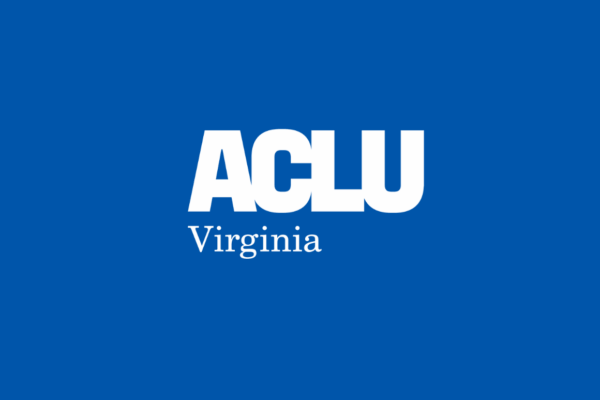Most bills approved by the 2011 General Assembly become law today.
Richmond, VA -- The ACLU of Virginia today released its annual review of the Virginia legislative session. Civil Liberties Review: Virginia General Assembly 2011 describes approximately 100 bills introduced in the General Assembly that advance or diminish civil liberties in Virginia.
The bills are divided into 11 categories: First Amendment, Privacy, Death Penalty, Equal Rights, Reproductive Rights, Immigrants’ Rights, Women’s Rights, Voting and Elections, Criminal Justice, Felon Disenfranchisement and Open Government. Unless special instructions are included, all bills that passed and were signed by the Governor become law on July 1.
“The 2011 legislative record in Virginia is most noticeably marred by a last minute maneuver that could erode reproductive rights in the state and by the failure of legislators to deal with Virginia’s worst-in-the-nation felon disenfranchisement law,” said ACLU of Virginia Executive Director Kent Willis.
“There is little to cheer about this year,” added Willis, “but lawmakers did extend some protections for women who are victims of domestic violence by allowing protective orders in situations involving non-traditional relationships, and they addressed growing concerns about the fairness and validity of police line-ups.”
“We are concerned about a bill expanding the use of the E-Verify program for immigration checks on private sector employees,” said Willis. “It may look like a reasonable bill on its surface, but E-Verify is notoriously inaccurate and it could lead to legally present immigrants losing their jobs or not being hired in the first place.”
“The Senate deserves some praise for blocking a large number of anti-civil liberties bills passed by the House of Delegates,” said Willis. “The House, for example, approved bills to authorize school prayer over public address systems at high school football games, to allow police to place GPS tracking devices on cars without a warrant, to amend the state constitution to state that life and all legal rights begin at conception, and to require a government-approved ID in order to vote by regular ballot. Without the Senate, these wrong-way bills would have almost certainly become law in Virginia this year.”
The 18-page Review is available online at: https://www.acluva.org/wp-content/uploads/2011/07/2011-Civil-Liberties-Review.pdf. A summary of some of the most important bills addressed during the session follows.
Contact: Kent Willi, Executive Director, 804-644-8022
Page numbers refer to Civil Liberties Review: Virginia General Assembly 2011
I. Civil Liberties Victories 2011
Passed bills that protect civil liberties
- Protective Orders Expanded--HB 2063/SB 1222 expands protective orders to include anyone who has been subjected to assault or any conduct that creates a reasonable fear of death, sexual assault or bodily injury. Previous law applied only to spouses, live-in domestic relationships, and couples who share a child. (Women’s Rights, p.10)
- Police Line-ups Regulated -- SB 944 requires the Department of Criminal Justice Services to create policies and training on police line-ups, response to emergency calls, and police pursuits. (Criminal Justice, p.13)
Failed bills that would have eroded civil liberties had they passed
- School Prayers Authorized -- HJ 593, according to its sponsor, would have begun the process of amending the Virginia Constitution to allow for prayers over public address systems at public high school football games. ( First Amendment, p. 2)
- Use of GPS Tracking Devices -- HB 2032 would have authorized the police to place GPS tracking devices anyone’s automobile without obtaining a warrant. ( Privacy Rights, p.3)
- Fusion Center Expansion -- HB 1953 and SB 918 would have expanded the function of Virginia’s Fusion Center --which was set up to collect data on terrorist activity in the state—to begin collecting data on ordinary domestic crimes. (Privacy Rights, p. 3)
- Life at Conception -- HB 1440 would have amended the Virginia Constitution to declare that life begins at conception. ( Reproductive Rights, p. 6 )
- ID to Vote -- HB 1560 (and others) would have required voters to show a government -issued ID or cast a provisional ballot. ( Voting and Elections, p. 11)
II. Civil Liberties Defeats 2011
Passed bills that erode civil liberties
- Abortion Restrictions SB 924 requires the State Board of Health to regulate abortion providers in the same way as hospitals, thus leading to the possibility of substantially (and unnecessarily) increasing costs for abortions. (Reproductive Rights, p. 6)
Failed bills that would have protected civil liberties
- Felon Disenfranchisement Reform -- SJ 284 (and others) would have removed from the Virginia Constitution the lifetime ban on voting by all former felons. (Felon Disenfranchisement, p. 15)
- LGBT Employment Protections -- HB 1506 (and others) would have banned discrimination on the basis of sexual orientation in state employment. ( Equal Rights, p. 5)
- Expansion of Voting Opportunities -- HB 1400 (and others), allowing early voting , SB 949, allowing no-excuse in- person absentee voting, and HB 786, extending voting hours to 8:00 p.m., would have made voting easier (Voting and Elections, p. 11)
- Drug Law Reform -- HB 1443 would have decriminalized simple first-time possession of marijuana (Criminal Justice, p. 13)
ACLU of Virginia, 530 East Main St, Richmond, VA 23219

Stay Informed
Sign up to be the first to hear about how to take action.
By completing this form, I agree to receive occasional emails per the terms of the ACLU’s privacy statement.
By completing this form, I agree to receive occasional emails per the terms of the ACLU’s privacy statement.

